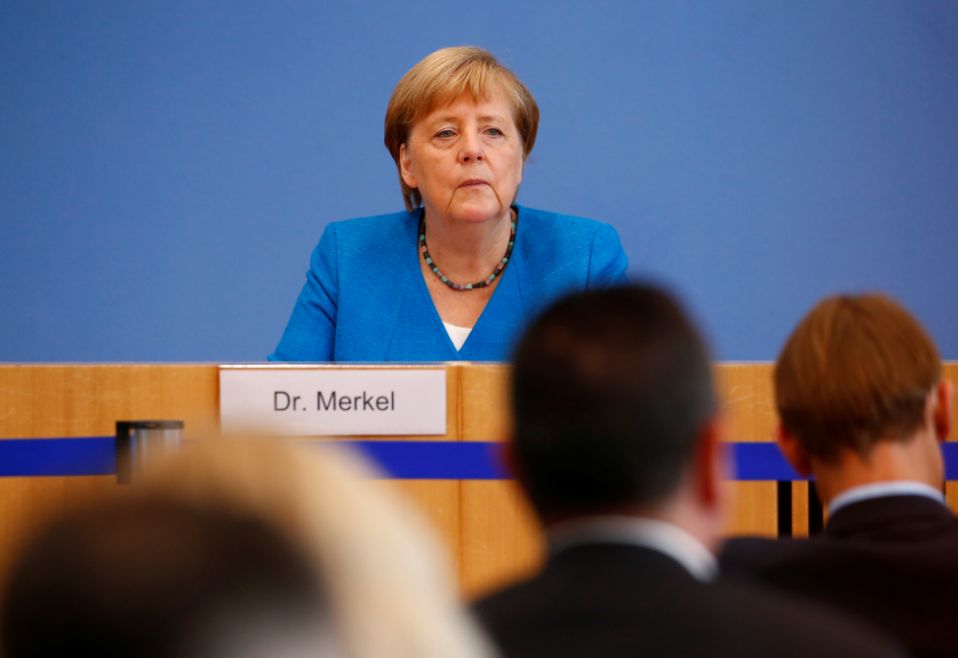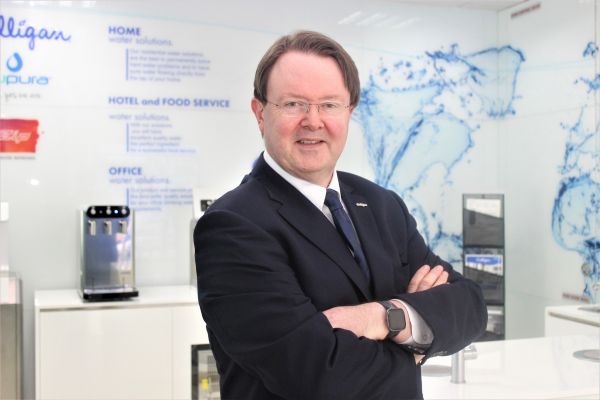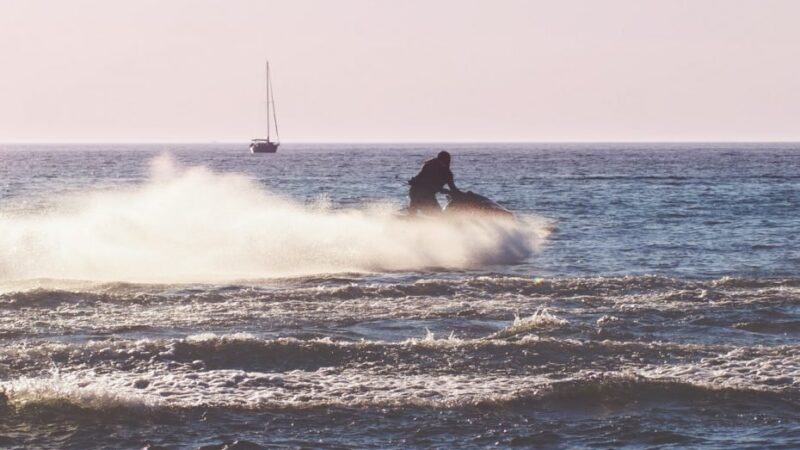
German chancellor Angela Merkel warned at a press conference in Berlin that the coronavirus pandemic is likely to get worse in the coming months.
“We have to expect that a lot will become even more difficult in the coming months… than in summer, when we were able to be outside,” Merkel said at her summer press conference today (Friday 28 August).
She added that the rise in infections is worrying. “It is serious, it remains serious, and please keep taking it seriously,” the chancellor said.
Her appeal today echoes her words at the beginning of the pandemic, when she made a rare national TV address to stress the importance of observing rules to try and get the pandemic under control.
READ MORE: German economy shrank by 9.7% in second quarter as pandemic peaked
Germany has been battling a significant increase in coronavirus infections in August, at points reaching daily new case tallies not seen since the height of the pandemic in April.
The country had 1,737 new infections on Saturday (22 August), the highest peak since April. Johns Hopkins University data showed 1,561 new cases reported in the 24 hours to Friday morning (28 August).
Merkel said today that the government will do “everything so that our children are not the losers of the pandemic. Schools and daycare need to be the most important things.”
The chancellor also said that the government would prioritise job preservation, keeping the economy going, or restarting it in areas where it was stalled by the pandemic, as well as maintaining social cohesion.
Merkel said today that Germany can afford all the measures it is putting in place to help the economy, but that the crisis was a challenge “for our financial strength.”
The German government will borrow nearly €218bn (£195bn, $258bn) this year to fund the raft of economic aid measures to keep the economy afloat, and has said it will also need to take on additional debt in 2021 as well.
READ MORE: Germany to take on more debt in 2021 to weather coronavirus fallout
The government in Berlin and Germany’s state leaders held a video-conference on Thursday to discuss new rules to tackle the surge in COVID-19 cases, with Merkel ruling out any further relaxation of restrictions, saying that “additional loosening of restrictions cannot be justified.”
After the five-hour video meeting, they agreed on a minimum fine of €50 for people not wearing face masks in compulsory zones, including on public transport and in shops.
The ban on big events, such as concerts and sports matches, will be extended to the end of the year. Private parties and travellers returning from high-risk areas are two particular reasons for the jump in infections, she said,
“We have decided today, and this is new, to call for travel to designated risk areas to be avoided wherever possible,” Merkel said on Thursday.
Merkel declined to answer a question today about how often she had been tested for coronavirus, responding that she had been in quarantine already, and the 14 days were long, even when you’re keeping busy at home.
READ MORE: Germany extends short-time work support until end of 2021
Germany has been offering mandatory, free-of-charge tests for people arriving back from high-risk countries and areas since the beginning of August.
This will change on 15 September, however, when the government will end free tests for people coming back from low-risk countries. Those returning from high-risk places will have to immediately go into home quarantine and are allowed to take a test only after five days — and leave quarantine if they are negative.
Merkel, who took questions from journalists online and in person at the press conference today, also said that Brexit trade-deal negotiations were entering a “decisive phase” in the coming weeks.
She declined to comment on the recent claim by Richard Grenell, the former US ambassador to Germany, that Donald Trump had “charmed” her in their meetings. “He did what… me?,” she said, before adding that she does not comment on private conversations.
On the topic of the controversial Nord Stream 2 Russian gas pipeline to Germany, Merkel said that the government was “against the secondary sanctions that the US have launched, and believes that Nord Stream 2 should be completed.
READ MORE: Fresh US threats to German port over Russian gas pipeline spark anger in Berlin
Listen to the latest podcast from Yahoo Finance UK





Recent Comments